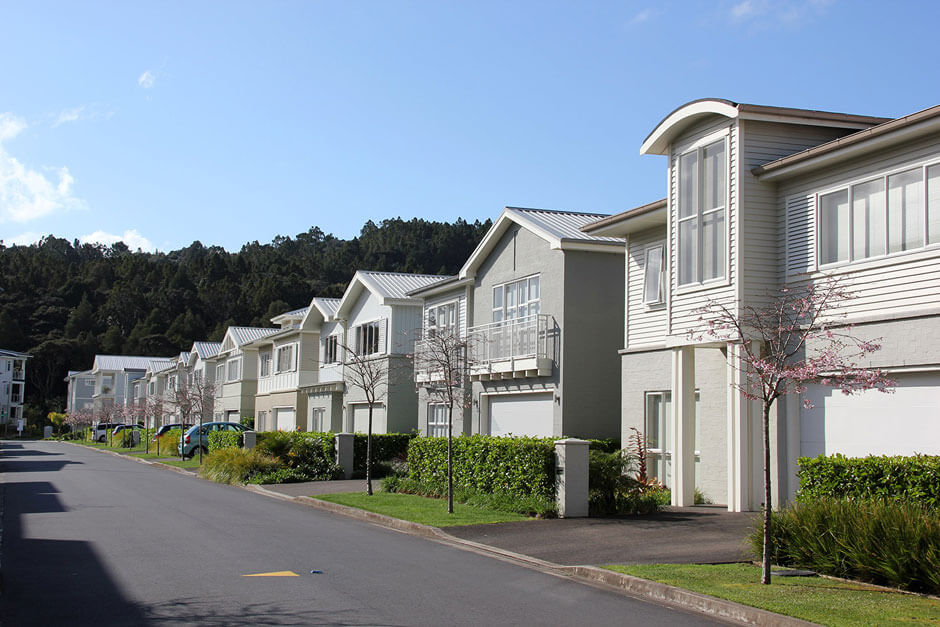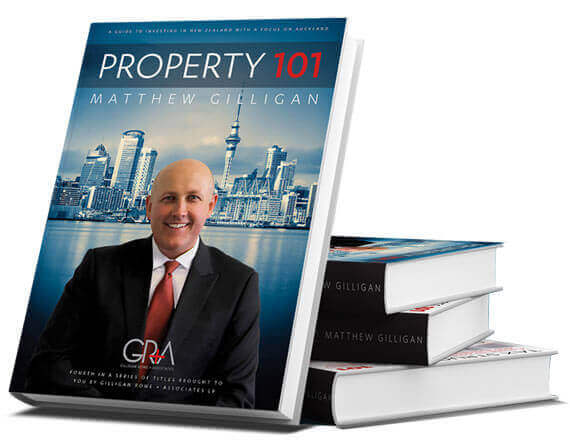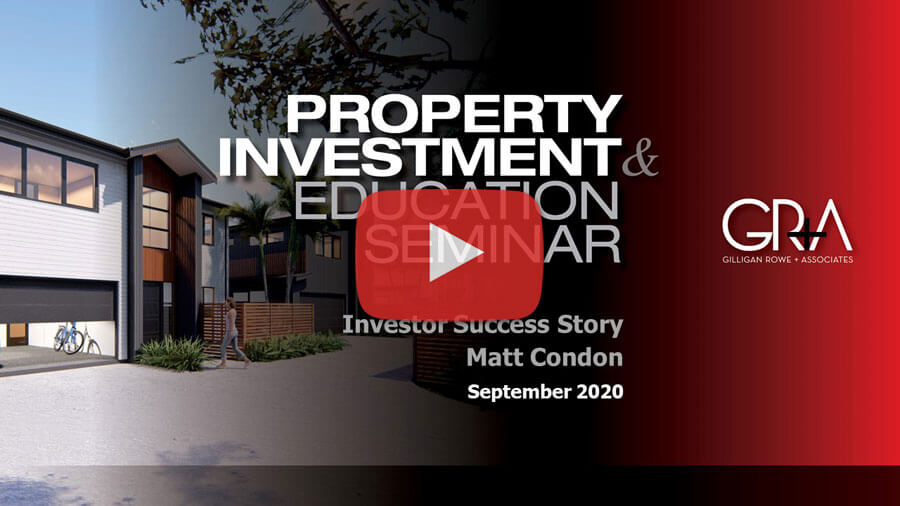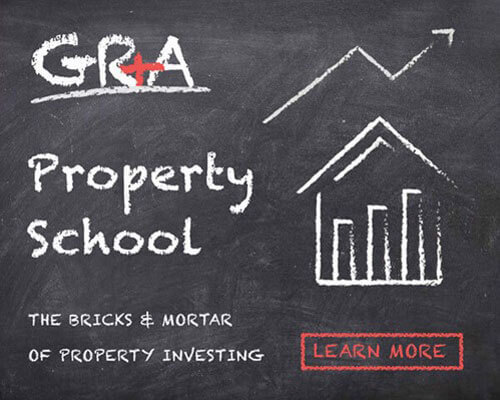Discover how to start - and succeed -
in property investing
Gilligan Rowe and Associates is a chartered accounting firm specialising in property, as well as tax planning and legal structures. We help new, small and medium sized investors to become long-term successful investors through our education programmes and property portfolio planning advice. For more than 20 years, we have used our deep knowledge and experience to help many thousands of clients build wealth through property investment.
- Would you love to get into the property market, but think that you’ve left it too late?
- Do you sometimes feel you that have left it too late, so you do nothing, and watch the market go up over the longer term?
- How do you break your financial gridlock, and get into property investment safely, while minimising the risks of a market downturn?
- How do you take advantage of a down-market ?
Well, it’s all about changing strategy as the market conditions change. Different strategies work at different times in the property cycle. It is also about tracking areas, demand versus supply, and reacting to the changing conditions.
So strategy (for your household), area choice (to get growth and cashflow), then property selection is a process. We can teach you about the different strategies, and how to invest with the best chance of success.
We can teach you to make money when you are buying, so that if the market falls, you lose the margin you created, not the cash you invested.
Attend GRA’s Property Investment & Education Seminar and find out how to get into the property market, and what successful investors do to manage the ups and downs of the property cycle.
Upcoming dates...
DATE
TIME
COST
PLACE
See how a new investor created over $180,000 in pre-tax profit in his first year of property investing.
When is the best time
to invest?
Frankly 10 years ago. But in 10 years' time, right now is 10 years ago, and that has always been the case in property. It's easy to feel left behind, left out or that it's too late to start.
If you take a long-term view, now is the best time to buy, and the market ups and downs represent real opportunity for recovery and growth. As Warren Buffet says, “Be fearful when others are greedy, be greedy when others are fearful.”
Events like the Covid-19 virus cause uncertainty in markets. Better buying results. Think not what it is worth today, but what it will be worth in 5-10 years. You get a much better result taking the longer term view in property.
So the best time to invest is not next year, not in five years, not when the market comes back, not when the market crashes, not when the neighbour tells you to, or when the brother-in-law accountant senses it’s the right time. Right now, lots of people are making money out of tried and tested strategies. Not just buy a house and wait for it to go up in value - there are smarter things to do in property than that. You just need to learn the strategies, apply them, and then you will be in the game too.

Why is property such a good investment for your wealth
creation and retirement planning path?
- Supply and demand – There is a lack of properties versus number of people, particularly in New Zealand. However, you need to break it down to the areas to see the real picture. Not all areas are equal.
- Lack of land to build on – Even though New Zealand has plenty of land, the actual availability of residential and commercial land to build on is limited by both government and local councils. Therefore, understanding zoning is key, especially if you want to add value to a property through subdivision or adding second dwellings, to improve cash flow.
- Population growth – Our population, particularly in Auckland, is growing from both natural increase (births minus deaths) and immigration. New Zealand is one of the best places to live in the world for a variety of reasons, and more and more immigrants come to New Zealand to make it their new home. More people equals increased demand for housing. More tenants, less volatility in house prices.
- Plenty of tenants - There will always be people who want to rent for various reasons: job, family, students, lack of affordability, don’t want commitment to a mortgage, relationships, divorce. Around 34% of New Zealand rents their home, as at first quarter 2020. This is increasing, in line with an international trend for more of the population to rent. That is great news for landlords, who seek a strong tenant pool to rent their houses.
- Cash flow and capital growth –If you buy right, property creates cash flow while increasing in value over time. You get paid both ways, if you do it right. But many people assume one (growth) comes at the expense of the other (cash flow). This is where the experience of your team kicks in.
- Instant Equity – Creating money when you buy a property is something seasoned investors become adept at, and that changes the game.
- Whether you buy a house and simply tidy it up with a renovation and revalue on completion, or whether you fundamentally change the nature of the house and land through changing its use, or adding dwellings, or subdividing and building new houses, your goal should be to make money by targeting instant equity strategies.
- If the value of the asset on completion for the renovated house, or house split into dual flats (or whatever you did), or the value of new houses built, or modified or upgraded dwelling/s exceeds the cost to complete it all, then you are making money, creating instant equity for your portfolio.
- You can use this equity to borrow against, and thereby recycle your deposit out of the property and into a new one, using it again to get another investment going.
- Or you can sell the house/s that you modified or built, and make money from doing that – buying and selling (trading).
- Instant equity is a game changer. It makes you money when you buy and add value, which protects you from a drop in market, makes you real equity, and allows you to keep investing, whether as a long-term investor or a trader.
- Leverage – You can use the bank’s money to fund your investment by borrowing 70-80%, but keeping 100% of the capital growth – as long as you get the tax planning right. Note that the LVR rules (i.e. how much investors can borrow from the main banks), change from time to time, but the principle illustrated below is the same.

- For example, say you have access to $100,000 for investment. You invest it into an asset (shares or property) that’s gets 10% capital growth per annum for 10 years, meaning 100% growth over 10 years. (Auckland property has achieved 100% growth every 10 years for the last 40 years (in nominal dollars, not inflation adjusted dollars.))
- If you invest your $100,000, you get $200,000. That’s 100% return on your money or cash on cash return.
- If you leveraged the $100,000 at 80%, i.e. borrowed $400k from the banks, then you would be investing $500,000, with a $100,000 deposit.
- Because you buy the same asset (just more of it), you get 100% growth on $500,000, which is +$500,000.
- +$500k return / $100k invested is 500% cash on cash return!
- The benefit of leverage is you get growth on other people’s money. Of course if you get the market wrong, you leverage losses. So it is important to get the market and strategy right.
- Strategy – Picking your strategy requires careful analysis of your household capability, considering your financial capacity, your level of experience, risk tolerance and time availability. It is best done with input from accountants, mentors and mortgage brokers. We call this your team of experts, and at GRA we coordinate all of this for you to make sure it works.

Start your learning with
our free seminar
Our free seminar is presented by experienced, active property investors, including our resident Property 101 author, Matthew Gilligan. Matthew at time of writing in 2020 owns over 60 properties through his personal portfolio, trading, and development joint ventures.
Our free introductory seminar teaches you a lot about property in New Zealand, covering:
- Property investment strategies that work in this market, like trading houses, long-term investment, and developing. We discuss cash flow strategies, as well as capital growth, to teach listeners how to get a blend.
- Finance strategies for new investors through to those with larger, more experienced portfolios.
- The importance of structuring property transactions correctly (for both tax and asset protection).
Our philosophy at GRA is centred around building wealth steadily and safely over the long term (10 years), and the strategies we teach are the ones we follow ourselves.
But property is only a good investment if you know how to invest in a way that reduces your risk and maximises your returns. Whether you invest in one rental property or ten, it doesn’t matter, but what does matter is that you take the first step to get yourself educated in how to purchase property correctly. Don’t invest in property until you learn the traps!

Upcoming dates...
DATE
TIME
COST
PLACE
What’s in this free seminar?
The fundamentals of the New Zealand property market, particularly Auckland and the other larger centres, provide a great foundation for property investment. What are good fundamentals? Low supply, high demand, increasing population, and, especially, high employment. These factors work to keep the property market buoyant and values continue to increase over time. However, you need to pick your strategy and area, and know what you are doing. There are some places and some property types that do not make for good property investing. You also need to understand how the property cycle works, so you can protect yourself from a market correction.
Take a look at the top 10 things you will learn at the Property Investment & Education Seminar:
- Why property is still the No.1 investment tool for New Zealanders
- What type of property you should be purchasing
- What’s working in Auckland? Where does your money get the best bang for its buck?
- Leaving the Auckland market; picking the best of the small centres to invest in
- Tax and legal structures – what do you need to think about here?
- Case studies of property deals being done right now, and how you can do them too
- Property question and answer session
Upcoming dates...
DATE
TIME
COST
PLACE
Don’t wait for another opportunity to pass you by. Click to register for your preferred option above (Zoom or On Demand). Or simply pick up the phone and call us on (09) 522 7955 to book your spot.
We look forward to seeing you at one of our FREE Property Investment & Education Seminars.










































